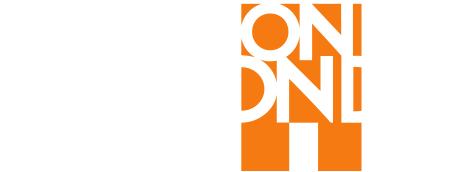


Many will not see the need to use the services of a manager for a new construction. However, certain steps are crucial when setting up the co-ownership syndicate.
The need for professional management has already been mentioned in the media, through several articles and reports, including in particular that broadcast by the program La Facture on Radio-Canada (french only), a few years ago. The latter, entitled “Condos bâtis sur des coquilles vides’’ (french only), highlights a major problem in the condominium construction industry in Quebec.
A problem that we have already had to deal with for certain co-ownership syndicates that we manage.
Although little known to the general public, this phenomenon highlights the crucial importance of certain concepts during the initial phase of a new construction. An experienced manager becomes the essential ally to navigate through the challenges of establishing a syndicate. From the creation of the co-ownership register to the efficient management of common areas, each step requires specific expertise.
Although the report on La Facture, broadcast in 2020, exposed these practices, they remain glaringly relevant today. The report explained how some construction companies create numbered companies for their real estate projects, a tactic aimed at protecting themselves against possible substantial expenses in the event of later discovery of construction defects or hidden defects.
This observation highlights the continuing importance of being well supported in the complex world of real estate construction. The company empties the coffers once the project is completed, which leaves no room for owners to claim amounts owed to them.
The report particularly targeted the company Habitations Trigone. However, this business model is widespread among several companies. In the cases where we had to confront this reality, it involved companies other than Habitations Trigone.
If you would like to watch the report, it is available free of charge on the tou.tv website.
In the context of new construction, some may underestimate the use of the services of a manager. However, when setting up the co-ownership syndicate, certain steps are of crucial importance. Therefore, to ensure a solid foundation for your co-ownership syndicate, collaborating with a manager is essential, but the choice must be judicious.
In the context of new construction, it is imperative to favor a manager with in-depth expertise in the field of construction. This person must be familiar with the different phases of a construction project and the necessary documentation. To our knowledge, few management companies master the construction aspect, with the exception of SolutionCondo. Our technical team, led by Sébastien St-Pierre (more than ten years of experience) and Valérie Vincent, is specially trained to address the unique challenges of real estate projects currently being carried out.
Our team stands out on the market with its in-depth knowledge of construction. The two heads of the Technical Department were both immersed in the world of construction before venturing into co-ownership syndicate management.
Sébastien St-Pierre has led teams on large-scale projects in Quebec and Canada for more than ten years and has excellent knowledge of building maintenance.
Valérie Vincent now has more than six years of experience in architectural firms as a building technician and architectural designer. Her technical knowledge and experience in site supervision allow her to effectively manage projects, large and small within co-ownerships.
One of the crucial steps when the building is completed is to proceed with the acceptance of the common areas of a building. There should be a certificate of completion of work issued by the contractor. Often, this document is signed too quickly without having made the necessary checks in advance. Members of the Board of Directors are not to blame, since the construction field is often unknown to them.
Please note that there is a deadline to sign this document and that it should never be signed upon receipt. Before signing this document, it would be advisable for the co-ownership syndicate to hire one or more experts who will examine the building and write a report on the conformity of the installations. In the best-case scenario, you should not wait too long to avoid the company emptying its coffers and you finding yourself in front of an empty shell!
Calling on a manager from the start means arming yourself against empty shells and future problems. This means guaranteeing a smooth transition from the developer to the syndicate, thus ensuring a well-managed co-ownership from its creation, anticipating challenges and making informed choices that will ensure the sustainability of your property.
Valérie Vincent
Director technical projects
The recent report by La Facture on Radio Canada on a manager who flouts the rules of the game (french only) is challenging for our industry in the sense that it demonstrates the potentially devastating effects for the public of an unsupervised industry, when unscrupulous people choose to work in it.
We invite you to read the position taken by the AQGC in its article: “The professionalization of co-ownership managers…are we going there or not? »
As explained in other past articles, this professionalization is the only solution to avoid many problems in the future, including the difficulty of finding quality property managers. The shortage of competent managers is currently present in Quebec, but it risks becoming more accentuated if nothing is done, especially since we know that more than 150,000 residential housing units must be built per year until in 2030. (https://bit.ly/3TedLgt) (french only).
Jan 2022 – How to mobilize your property manager?
Jan 2021 – Professionalization: independence and integrity for increased credibility (french only)
Feb 2019 – It is imperative to professionalize the profession of co-ownership manager (french only)
At this point, all it takes is political will.
Elise Beauchesne, CPA, CA, Adm.A
Co-founder
514-935-6999
[email protected]